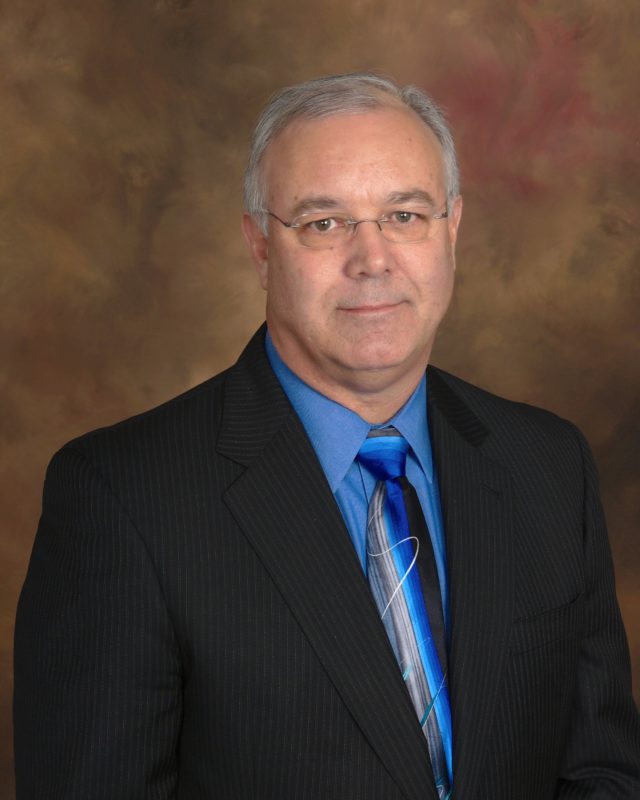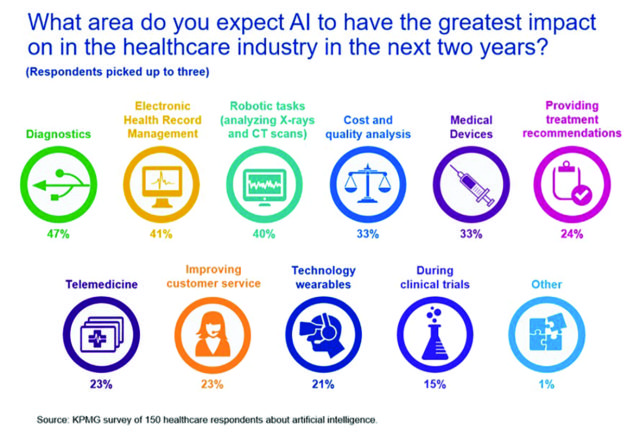 By Larry Burnett, Advisory Principal, KPMG, Health & Government Solutions and Ketan Patel, Advisory Principal, KPMG, Healthcare
By Larry Burnett, Advisory Principal, KPMG, Health & Government Solutions and Ketan Patel, Advisory Principal, KPMG, Healthcare
Fragmentation and a lack of coordination among healthcare providers can lead to inappropriate care and higher costs.
While technology, including artificial intelligence, can be a help to overcome gaps in care and improve diagnostic capabilities, some executives and clinicians have legitimate concerns.
When KPMG surveyed 150 healthcare executives about their ethical concerns with artificial intelligence, 75% cited threats to data security and privacy as the biggest issue followed by a loss of personal interaction/humanistic approach (59%).
A connected healthcare system can have profound benefits on the coordination of care. However, coordination needs to be done across a multitude of settings, whether that is in a physician’s office, an outpatient center, hospitals, post-acute care or at home. The goal is to

identify the most clinically appropriate setting for the lowest cost.
Health plans and government payers are pushing for this approach to care and are trying to reward quality or shift financial risks to healthcare providers. In fact, hospitals face penalties for patient readmissions as part of this approach.
This presents a challenge for healthcare providers and their patients, especially those with chronic conditions that have led to repeat hospital visits. Inevitably, this places a burden on the aged, since 81% of those 65 and older have multiple chronic conditions. Among all adults, 12% had five or more chronic conditions and accounted for 41% of all healthcare spending. These patients are the “frequent fliers” of the healthcare system with higher emergency department visits, inpatient stays, outpatient visits and the number of prescription drugs.

The dilemma involves helping these patients manage their conditions, their medication use, helping them with lifestyle changes and addressing social determinants of health (SDOH). Technology can assist clinicians by sorting through random data to uncover arrangements that can define patterns of care, and identify causality that can be addressed to improve outcomes. Social determinants of health can have an impact on health outcomes, but much of the data comes from sources outside the clinical arena.
Artificial intelligence and predictive analytics can be applied to the array of structured data from electronic health records, genetic information and unstructured data tied to social determinants of healthcare, giving a much clearer picture of a patient’s life inside the four walls of a healthcare provider, their environment at home, and how their cells are programmed.
KPMG’s survey about AI in healthcare also found that vast majorities of respondents see improvements in efficiency (89%), access (91%) and the patient experience (90%). A majority see AI increasing the cost of care (54%). In the next two years, the biggest impact of AI on healthcare will come from diagnostics (47%), electronic health record management (41%), and robotic tasks (40%). Cost and quality analysis (33%) and providing treatment recommendations (24%) were also seen as benefiting from artificial intelligence.
The survey results show that advanced analytics can be a powerful tool to help assess the risks of a patient and which ones need the most attention at a particular time and getting them to the most appropriate setting. Even more importantly, technology can alert clinicians to take action before a looming health issue becomes a full-fledged emergency.
At the very core of medicine, technology is an important tool to help sift all of the data that is generated during the course of patient care, but also the environmental factors that can affect a patient. For example, the air quality can also trigger an alert to help patients with respiratory problems.
However, we must never lose sight of the fact that the technology is a tool to help make better decisions in patient care. Ultimately, those better decisions need a hands-on approach to engage patients no matter where they are getting care.


